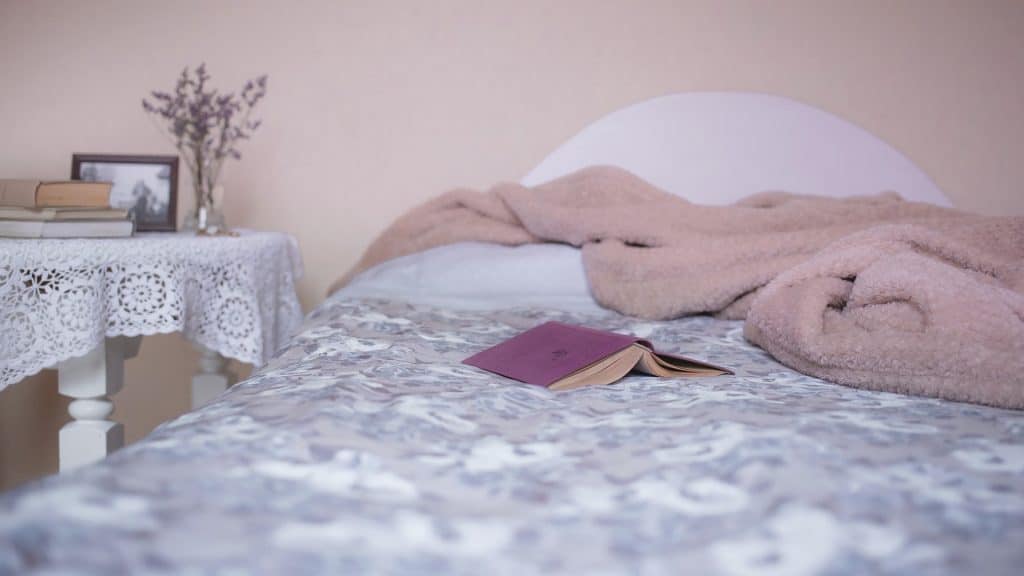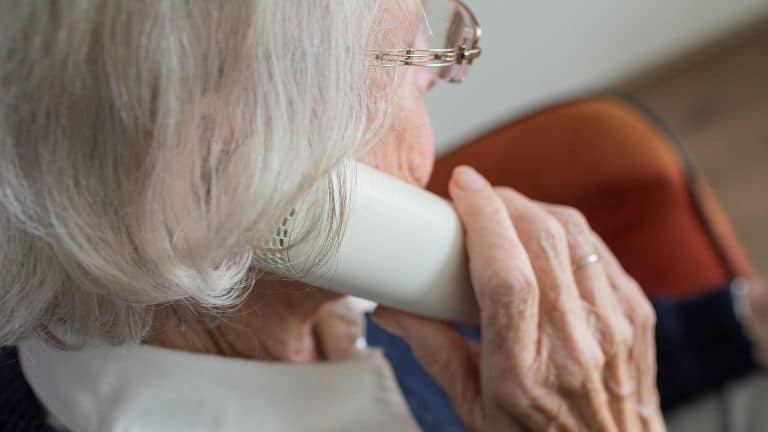Aging and Sleep: All You Need to Know

We live in a busy age where life moves fast, and most of us have trouble unwinding. Our rest time often gets the shorter end of the stick in an attempt to catch up. Furthermore, sleep needs don’t diminish as we age. Aging and sleep is a topic worth investigating because a new set of challenges arises with age. As a result, irregular sleeping patterns and insufficient sleep take a toll on seniors’ health in more ways than one. Read on to get answers to all your questions regarding sleep!
Why Is Sleep Important?
The quantity and the quality of your sleep greatly influence your physical and mental health while you’re awake. This includes your:
- productivity
- creativity
- vitality
- emotional state
- heart and brain health
- immune system
- weight
So, to better understand aging and sleep problems, first, you should realize why sleep is so crucial for our health and normal functioning.
Though your body and mind shut down when you sleep, your brain keeps busy overseeing biological functions, reorganizing memories from the past, and preparing you for the following day. A sudden change in your sleep pattern causes numerous problems during the day. Without the appropriate amount of uninterrupted sleep, you won’t be able to:
- learn
- work
- create
- communicate
- perform at your usual level
Moreover, prolonged periods of sleep deprivation can cause significant mental and physical problems.
The quantity of sleep is not the only thing we need to think about because not all sleep is equal. You may be having enough hours of sleep but still feel tired in the morning. The reason for this may be the fact that something is keeping you from spending enough time in different stages of sleep—especially in the “deep sleep stage” when we’re most relaxed and the REM phase, when we dream. Improper sleep patterns and aging have been thoroughly studied. However, it remains somewhat inconclusive as to why exactly sleep patterns change as we get older.
Age and Sleep Chart
According to the National Sleep Foundation, sleep requirements change dramatically for different age groups. There are two ranges for each age group. One includes the number of hours of sleep needed, and the other—a wider range that may be more appropriate for certain people.
However, the lower figures aren’t recommended for everyone, nor are they necessarily recommended for long periods. Take a look at the evidence-based recommendations for every age group.
| Average Sleep Needs by Age | ||
| Age | Hours needed | May be appropriate |
| Newborn to 3 months old | 14–17 hours | 11–19 hours |
| 4 to 11 months old | 12–15 hours | 10–18 hours |
| 1 to 2 years old | 11–14 hours | 9–16 hours |
| 3 to 5 years old | 10–13 hours | 8–14 hours |
| 6 to 13 years old | 9–11 hours | 7–12 hours |
| 14 to 17 years old | 8–10 hours | 7–11 hours |
| Young adults (18 to 25 years old) | 7–9 hours | 6–11 hours |
| Adults (26 to 64 years old) | 7–9 hours | 6–10 hours |
| Older adults (65+) | 7–8 hours | 5–9 hours |
So, how much sleep does an 80-year-old need? By looking at the table, we can see that older adults need a similar amount of sleep as adults. However, most seniors have trouble meeting these requirements, especially regarding sleeping without interruptions at night.
How Common Are Sleep Problems in Seniors?
Sleeping problems are prevalent in seniors. 40%–70% of older people have chronic sleep issues, and up to 50% of the causes may be undiagnosed. Some of the sleep issues they experience include:
- taking a long time to fall asleep
- waking up from sleep often during the night
- waking up early and not being able to get back to sleep
- waking up tired
- being sleepy during the day
The above problems aren’t strictly related to old age when it comes to aging and sleep deprivation. Be that as it may, they are much more prevalent in seniors.
What Are the Causes of Sleeping Problems in the Elderly?
Getting a good night’s rest can be difficult for young people as well as older ones. But why is it harder to sleep when you get older? The elderly often face extra challenges that come with aging. However, the sleep cycle, duration, and quality are highly responsive to personal habits and behaviors, including diet. In turn, better sleep extends the lifespan and contributes to a higher quality of life. Numerous causes contribute to sleep issues in older adults, including:
Insomnia
Insomnia in older adults is defined as taking more than 30 minutes to fall asleep, waking up many times each night, waking up early and being unable to get back to sleep, and getting up feeling tired. Many medical or psychiatric conditions can bring on short-term insomnia. If insomnia in seniors lasts more than a month, it’s considered chronic even if the original cause is resolved.
Sleep-Disordered Breathing
This is a general term for breathing difficulties, including snoring and sleep apnea, which affect sleep. Nearly 40% of adult men and 24% of adult women snore. Moreover, snoring is more common in obese people and older adults. It’s caused by a partial blockage of the airway passage from the nose and mouth to the lungs. Sleep apnea and aging also go hand in hand, and it is much more common in obese people. It’s more severe than snoring as it can stop your breathing due to a partial or complete blockage in the airways, waking you up in the middle of the night. It can significantly increase the risk of stroke, high blood pressure, heart disease, and cognitive problems.
Movement Disorders
Two movement disorders cause less sleep as you get older—restless leg syndrome (RLS), which affects over 20% of people over 80, and periodic limb movement disorder (PLMD), which can be found in nearly 34% of people over 60. People with RLS experience the feelings of tingling, crawling, or pins and needles in their legs, while those who have PLMD jerk and kick their legs often during sleep. This causes them and their sleeping partners to have trouble sleeping.
Chronic Conditions
Some of the reasons the elderly can’t sleep at night can be chronic conditions that prevent them from falling asleep or waking up. These can include chronic pain, such as arthritis, heart failure, hyperthyroidism, heartburn, menopause, Parkinson’s disease, and so on.
Dimming Eyesight
Natural light is pivotal to our sleep and aging brain. Special photoreceptors in the eyes, called ganglion cells, absorb the blue spectrum light that filters the sun through the Earth’s atmosphere. These cells send signals directly to the circadian region of the brain, which controls, amongst other recurring bodily functions, the sleep cycle. As the eyes begin to dim with age, less light is absorbed. Consequently, the timing of the sleep cycle doesn’t stay in sync with the Earth’s day/night pattern. Excessive sleep in elderly people might be observed during the day, but, as a result, they might have trouble sleeping at night, when they should be sleeping.
Physical Aches and Pains
Age brings arthritis, lingering injuries, and the loss of strength and flexibility, all of which can contribute to growing aches and pains. Consequently, it becomes harder to get comfortable at night.
Dementia-Related Illnesses
Sleep disorders in aging and dementia or Alzheimer’s patients are well documented. Those suffering from dementia-related illnesses have a higher than average rate of sleep disorders. These neurological illnesses affect the brain in ways that may alter how the body controls the sleep cycle. Wakefulness, early waking, and “sundowning” are often the result. Sundowning is a term used to describe the agitation and sometimes aggressive evening behavior of those with dementia.
Medications
The side effects of some medications are related to insomnia and aging. Others may make you fall asleep during the day, which makes it harder to sleep at night. You should talk to your doctor if you suspect you have trouble sleeping due to a medication you started taking recently.
Change
Certain changes like financial problems, a new illness, moving to an assisted care facility, or the death of a loved one can cause stress that triggers sleep disorders in the elderly.
Retirement
Finally, something as simple as retirement can be your primary cause of insomnia. Why? If you have a lot of free time and not much activity during the day, you’ll be less tired in the evening, which can cause you to be unable to fall asleep.
Signs of Sleep Problems in the Elderly
If you stop meeting the sleep requirements, and this becomes a habit, the chances are you’ll become sleep-deprived. The signs may be subtle, and you might not even know they are caused by sleep deprivation. Changes in sleep patterns and aging can seem natural, but they are not normal behavior. After a while, you may even forget how it feels to be fully rested. Some of the signs of being sleep deprived include:
- needing an alarm to wake up on time
- repeatedly snoozing the alarm
- having a hard time getting out of bed
- feeling exhausted in the afternoon
- getting sleepy in lectures, meetings, or warm rooms
- becoming drowsy after big meals or while driving
- needing to take naps throughout the day
- falling asleep while relaxing in the evening
- sleeping in on weekends
- falling asleep within minutes of going to bed
The Effects of Sleep Deprivation
It can be hard to notice the connection between sleep issues and their specific effects. For instance, sleep deprivation and skin aging are related, but you may not think of your poor sleeping habits as the reason you look older than people your age. The lack of sleep can go on for years, and its adverse effects go way beyond daytime sleepiness.
Some of the effects of not getting enough sleep or long-term sleep deprivation can include:
- exhaustion, apathy, and lack of motivation
- irritability and moodiness
- increased risk of depression
- weight gain
- lack of creativity
- reduced problem-solving skills
- difficulty making decisions
- inability to deal with stress and manage emotions
- impaired motor skills which can increase the risk of accidents
- hallucinations and delirium
- decreased sex drive
- increased risk of developing severe health problems such as high blood pressure, diabetes, heart disease, stroke, certain cancers, and Alzheimer’s disease
Furthermore, sleep deprivation and brain aging can impair cognitive abilities such as learning, focus, and memory problems. Moreover, a sleep–deprived person has a weakened immune system, which can cause frequent colds and other infections. Finally, there’s a connection between poor sleep and aging skin, as we mentioned above.
The Impact of Diet on Sleep
It’s no secret that diet can influence and impact all aspects of health, from energy levels to immunity. However, it becomes even more critical for the elderly, who face many challenges to their sleep quality. A study published in the Journal of American College of Nutrition explored the relationship between dietary diversity, sleep quality, and the mortality rates of elderly individuals.
The results showed that an old person sleeping less than the recommended seven hours ate a smaller variety of foods and reported poorer perceived health. Both men and women showed improved sleep quality when they ate a more diverse diet, but the correlation between the two was significantly higher for women. In short, diet plays a significant role even in sleep and human aging.
But what does it mean to eat a diverse diet?
When it comes to the elderly, a Mediterranean diet has been shown to improve sleep problems in late adulthood, sleep quality, and overall health. This diet is mainly plant-based, involving various vegetables, fruits, whole-grain bread, seeds, and legumes. A small amount of protein comes from fish and seafood, which are low in unhealthy fats. While even smaller amounts of poultry, eggs, and milk products are also included, this type of diet avoids red meat and processed sugars.
However, it’s not just what is eaten that can influence sleep and aging and the success of the sleep cycle. There’s evidence that a diet high in complex carbohydrates, like the Mediterranean diet, can reduce the time it takes people to fall asleep. Other research suggests that adding in healthy proteins, like fish, seafood, and limited poultry, can reduce instances of nighttime wakefulness. The question is—when?
Using Meal Timing to Improve Sleep
The types of foods you eat create the building blocks to better health. But when it comes to the sleep cycle, the timing of those foods can be just as important. While sunlight plays the most significant role in the timing of the sleep cycle, the body uses other factors such as meal timing to sync the sleep cycle with an individual’s preferred schedule.
While we can’t directly influence sleep stages, they can disrupt standard sleeping patterns. Eating meals on a consistent schedule is key to helping the sleep cycle stay on track. If meals are delayed, critical factors like blood glucose levels and changes in adipose tissue can alter the timing of the sleep cycle. The body tries to follow individual needs, but if the timing of those needs continually changes, it can’t adjust appropriately. Sleep issues can result because the brain doesn’t release sleep hormones on a consistent schedule.
Sleep Problems During the Pandemic
It doesn’t come as a shock that the ongoing pandemic affects every aspect of people’s lives, including their sleep. Stress, disruptions to our routines, and anxiety harm our sleep. A recent survey showed that over 50% of Americans had had increasing problems with their sleep since the pandemic’s start. This is often called COVIDsomnia.
The most common sleep disturbances involve sleeping less, problems with falling or staying asleep, having more disturbing dreams, and experiencing worse quality sleep. Also, the struggle for good sleep leads to an increase in the use of sleep aids for the elderly.
Some healthy patterns you should adopt to fight these issues include:
- keeping the same sleep schedule
- not going to bed unless you feel sleepy
- creating a relaxing bedtime routine
- exercising regularly and maintaining a healthy diet
- reducing your fluid intake before going to sleep
Treatment of Lack of Sleep When Aging
The treatment of sleep disorders in the elderly revolves around identifying and treating the underlying causes of sleep deprivation. This can include working on changing your sleep habits, treating chronic illnesses and psychiatric issues, substituting medications that disrupt sleep with other solutions with fewer side effects, and learning to cope with stress and changes.
Although there are many safe sleeping pills for elderly people, these issues have to be resolved before turning to them. It would be best if you turned to them only as a last resort and for short periods.
Tips for Better Aging and Sleep
The timing and duration of the sleep cycle are highly responsive to habits and behaviors, which gives the elderly the ability to increase their chances of getting a good night’s rest. It may take a few changes in practices and time for the body to adjust, but it’s worth the effort if it helps achieve sufficient sleep and avoid senior sleep problems.
If you’ve successfully resolved the problems that cause you to lose sleep or don’t have any specific issues but still have trouble sleeping, there are many steps to help you get a good amount of quality shut-eye. The following tips are recommended for anyone who is looking to rid themselves of lack of sleep and premature aging:
- Stick to a regular sleep schedule
- Avoid afternoon naps
- Manage your stress
- Be active for at least 30 minutes each day
- Don’t drink caffeine or eat heavy meals before sleep
- Improve your sleep environment by keeping your bedroom dark, quiet, and cool
- Opt for bed sheets made of natural fibers that allow for maximum breathability
- Have a relaxing bedtime routine—for instance, take a warm bath before bed
- Avoid looking at screens at night and read by a dim light
- Increase natural light exposure during the day to help the body regulate sleep hormones
- If you can’t fall asleep, get out of bed and try again later
Conclusion
After reading everything on lack of sleep and aging, we can conclude that you must take care of your body at all stages of life. The quality and consistency of that care make a big difference in the quality of life in the later years. Building habits that create the best possible circumstances for adequate sleep can help seniors get better rest and avoid the long–term effects of lack of sleep. With better sleep comes the opportunity to take advantage of all that life still has to offer.
FAQs
How does sleep change as we age?
Our sleeping needs change as we grow and age. A newborn needs as much as 17 hours of sleep. The necessary amount of sleep decreases progressively before reaching a plateau of 7–9 hours when we become adults, proving that sleep changes with age. This remains our target amount of sleep for most of our lives.
How many hours of sleep do older adults need?
Adults aged 65+ need at least 7–8 hours of sleep to function properly when awake. A wider range of 5–9 hours may be appropriate for some people, but it is not recommended for more extended periods.
Do seniors need less sleep?
Technically, yes, but only one hour less than adults aged 26–64. This is because we need less sleep to become fully rested as we get older.
Do you sleep more as you get older?
In general, no. Most seniors sleep fewer hours overall than when they were younger, but they take more frequent naps during the day. Typically, older people spend more time in the earlier sleep stages and less time in the deeper ones. This may contribute to them waking up more often throughout the night and having less restful sleep. Aging makes falling asleep harder and causes insomnia in elderly people. They wake up more often throughout the night and earlier in the morning.
Is it bad to have too much sleep?
Besides wasting precious time, oversleeping has been linked with many medical issues such as headaches, diabetes, obesity, back pain, depression, heart disease, and the increased risk of death.
Do sleep patterns change as we age?
Yes, growing older has been known to cause trouble falling asleep, waking up during the night, sleeping during the day, and not spending enough time in deep sleep.
What causes insomnia in older adults?
Insomnia in older adults can be caused by anything from poor sleeping habits, chronic illnesses, medications, psychological difficulties or psychiatric disorders, and specific sleep disorders to retirement.
Is insomnia a symptom of dementia?
There is a link between sleep deprivation and an increased risk of developing Alzheimer’s. Insomnia in older adults can be a warning sign of dementia. That comes as a result of some studies of aging and sleep habits.






